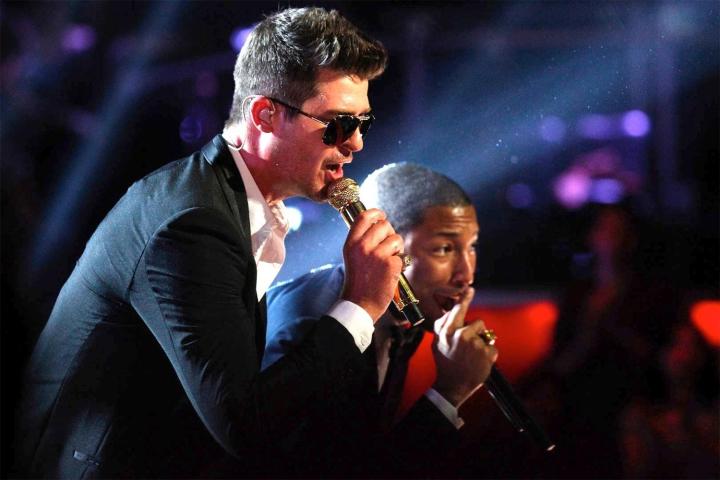
Update 3/18/15 by Chris Leo Palermino: Update regarding news of Gaye family’s legal intentions
According to The Hollywood Reporter, the Gaye family now wants remuneration from the record labels which put out “Blurred Lines,” Universal Music, Interscope Records and Star Trak Entertainment, as well as T.I., the song’s third songwriter.
The Gaye family’s latest motion quotes U.S. District Judge John Kronstadt, saying “If the jury finds there’s infringement and if Universal distributed the recording, then according to what I heard [a lawyer from team Williams] say, they would be liable.”
While the Gaye family doesn’t plan to “cease the exploitation of ‘Blurred Lines,“ it hopes to negotiate an agreement for proper attribution so that the Gaye estate may be added to the song’s copyright and receive further proceeds from the song.
Unsurprisingly, team Williams doesn’t think they have a case. Pharrell Williams’ lawyer Howard King said that “some creative gymnastics will be required to justify any injunction against the owner and distributor of the song recording after they have been adjudicated not to be infringers.”
This injunction further solidifies the uniqueness of the case and the potential ramifications of copyright infringement. We’ll keep you updated on what happens.
Original article:
In a high-profile music copyright case, Pharrell and Robin Thicke’s 2013 hit “Blurred Lines” was found to be improperly derived from Marvin Gaye’s 1977 classic “Got to Give It Up.” And the case’s implications for pop musicians could be serious.
A year’s legal battle between Pharrell/Robin Thicke and Marvin Gaye’s estate wrapped up yesterday with a $7.4 million win for the late Motown singer/songwriter’s family. Arguing that Robin Thicke ripped off “Got to Give It Up,” attorney Richard Busch for the Gaye family testified of “similarities in signature phrases, hook, keyboard-bass interplay, lyrics and themes of the songs,” according to Billboard.
While Thicke and Williams noted that both songs rely on ‘that ’70s feeling,’ they claim it’s not a matter of copyright infringement but influence.”The last thing you want to do as a creator is take something of someone else’s when you love him,” said Williams in court proceedings.
A difficult case, it was particularly rough for Thicke. During the proceedings, it was revealed that Pharrell Williams wrote the song and that Thicke had lied while drunk and high during media interviews.
While the Gaye family was undeniably happy about the result, the case’s ramifications may go far beyond money exchanging hands. As the trial was vague on exactly what parts of the two songs are alike, it’s unclear how this most recent precedent could change future music copyright battles.
Where is the line between an artist using other artists as inspiration and an artist ripping songs from pop music’s massive cannon? As the Washington Post put it: Will Madonna sue Lady Gaga? Will George Clinton sue OutKast? Will Little Richard sue Prince?
As has been the case in similar proceedings, including the recent Led Zeppelin trial for “Stairway to Heaven,” the answer as to whether an artist copied, or was simply influenced by past works, often relies on the ears of the beholder.


